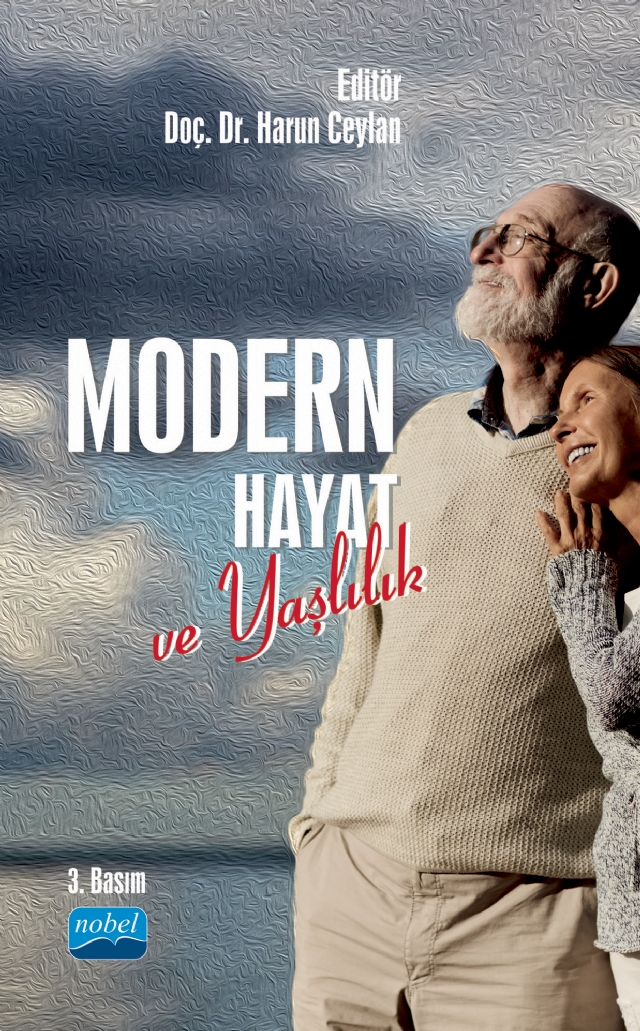Advanced Adulthood (Old Age) \ 1-1
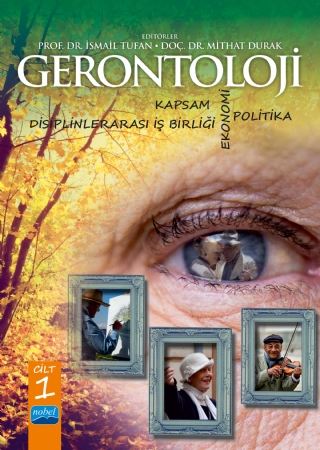
We would not have known the world by recognizing the faces of old age, which has been known for half a century, but considering that every person born under the sun is a world in itself, then knowing how and why we age and what kind of old age awaits us is the same as opening the door to a brand new world.
As we age, we change, and as we change, we change the world together. “Old” is the label. It is not our age that makes us old. Neither aging nor man has a single face. Every person goes from face to face throughout the day. He puts on and takes off his masks. Aging comes to us today with different faces. As we get to know them, we also recognize our aging and old age. Knowing about aging and old age means knowing the person and the age, especially in the age when the life expectancy sees 100 years and hopes that it will go beyond.
Old age doesn't have to be a sad end. As important as believing in destiny is believing that we can change it; that's the real issue. Getting old is our destiny, but changing old age is in our hands. Those who can predict their destiny can change their destiny. Seeing is possible with light. Knowledge is a powerful light. The mighty light of life in youth dazzles the eyes. In old age, however, life becomes more visible as the power of the light of life decreases. Our duty today is to improve the lives of those who can see life, to prepare the conditions for them to see a life full of peace, happiness and meaning.
The book in your hand, which is an encyclopedia, is the result of three years of hard work day and night. We think that you will read the chapters in this two-volume book with great enthusiasm and pleasure, in which the world-renowned and well-known experts in the field of gerontology convey their unique knowledge and experience as the authors of the chapters. In this book, which is prepared in two volumes, the subjects of Gerontology are discussed in a wide range from demography to psychology, from anthropology to sociology, from economics to life and environmental sciences, from education to technology, from politics to social welfare, from biology to psychiatry, from long-term care to preventive health, from nutrition to disability, from family structures to violence against the elderly.
As we age, we change, and as we change, we change the world together. “Old” is the label. It is not our age that makes us old. Neither aging nor man has a single face. Every person goes from face to face throughout the day. He puts on and takes off his masks. Aging comes to us today with different faces. As we get to know them, we also recognize our aging and old age. Knowing about aging and old age means knowing the person and the age, especially in the age when the life expectancy sees 100 years and hopes that it will go beyond.
Old age doesn't have to be a sad end. As important as believing in destiny is believing that we can change it; that's the real issue. Getting old is our destiny, but changing old age is in our hands. Those who can predict their destiny can change their destiny. Seeing is possible with light. Knowledge is a powerful light. The mighty light of life in youth dazzles the eyes. In old age, however, life becomes more visible as the power of the light of life decreases. Our duty today is to improve the lives of those who can see life, to prepare the conditions for them to see a life full of peace, happiness and meaning.
The book in your hand, which is an encyclopedia, is the result of three years of hard work day and night. We think that you will read the chapters in this two-volume book with great enthusiasm and pleasure, in which the world-renowned and well-known experts in the field of gerontology convey their unique knowledge and experience as the authors of the chapters. In this book, which is prepared in two volumes, the subjects of Gerontology are discussed in a wide range from demography to psychology, from anthropology to sociology, from economics to life and environmental sciences, from education to technology, from politics to social welfare, from biology to psychiatry, from long-term care to preventive health, from nutrition to disability, from family structures to violence against the elderly.
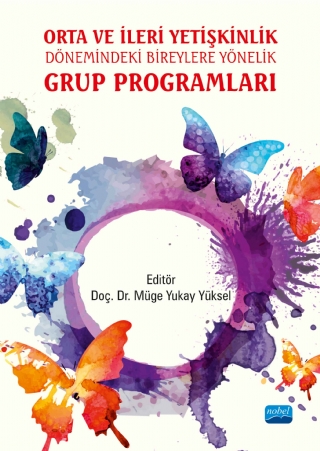
“Group Programs for Intermediate and Advanced Adults” have been prepared for students who are still studying in these fields, as well as psychological counselors, psychologists, sociologists, social workers and medical professionals. The increase in the elderly population has necessitated the diversification of services for this population. Economic, psychological, social and health-related changes and problems in the life of the elderly person affect not only the elderly but also those living with them. As a result, it is necessary to carry out various studies by adopting different approaches to the problems that individuals are likely to encounter from the adult years. Based on this need, in the book "Group Programs for Individuals in Middle and Advanced Adulthood", programs and therapeutic content are planned for solving problems that can be experienced from adulthood on. The book you are reviewing is designed to consist of four functional parts. In the first part of the book, “social issues in middle and advanced adulthood” are mentioned. In this section, sessions that support communication skills, provide informative counseling, psychoeducational, life-cycle-based group therapy, adapt to menopause and andropause period, career planning in advanced adulthood, social life skills after retirement and make effective use of free time are planned. In the second part, group sessions based on cognitive-behavioral, psychoeducational, narrative therapy and mindfulness-based techniques were developed, addressing the process of “adapting to the changing cycle in advanced adulthood” under the headings of adapting to changing roles, empty nest syndrome, adaptation to second marriage, and developing grandparenting skills. In the third part, under the title of “psychological support for special groups in advanced adulthood”, psychological support groups are planned for people who are in need of special care, who are responsible for caring for the disabled and those with Alzheimer's disease, and who have adult patients in intensive care, and it is aimed to protect the mental health of individuals living with these special groups. In the fourth part, group studies supported by cognitive behavioral, expressive, humanistic and spiritual approaches were prepared for individuals who are trying to provide "psychological support to individuals in advanced adulthood" and who are trying to cope with depression, fear of death and the grieving process.
We hope that the “Group Programs for Individuals in Middle and Advanced Adults” book, which is supported by enjoyable and practical exercises, will be a resource that can be easily used by those who volunteer to support individuals in their old age.
We hope that the “Group Programs for Individuals in Middle and Advanced Adults” book, which is supported by enjoyable and practical exercises, will be a resource that can be easily used by those who volunteer to support individuals in their old age.
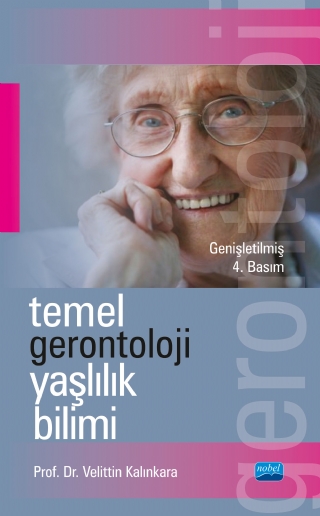
Our elderly world has also started to age demographically. Although the phenomenon of aging is mostly accepted as a problem of developed countries, it is now an issue that should be emphasized as much as developed countries. Since the beginning of the twentieth century, there has been a significant increase in the number and proportion of the elderly as a result of the improvement of health conditions, decrease in fertility and increase in quality of life with the effect of industrialization. This increase; It has caused rapid and important changes in family and community life, changed social institutions, behavior and values, and affected the status and functions of the elderly. In this process, while the family structure and social structure changed, the readiness of the family and the institutions did not change in the same direction. While the improvement of living conditions ensures longevity, the economic, social and health-related problems of longevity are generally ignored.
This book will be useful for individuals to equip themselves with basic information about aging and to develop an attitude towards solving problems. It is a source book especially for academicians working in health and social fields, students studying in the field and those who are interested in the subject.
This book will be useful for individuals to equip themselves with basic information about aging and to develop an attitude towards solving problems. It is a source book especially for academicians working in health and social fields, students studying in the field and those who are interested in the subject.
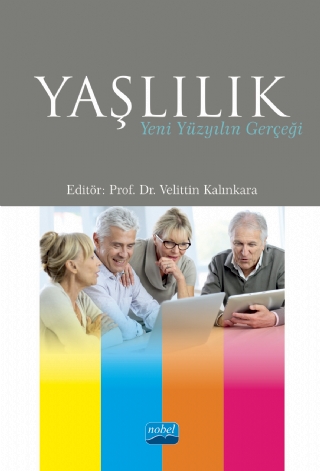
In the twenty-first century, demographic change is taking place that has never happened in world history, and no country is outside this scope. While increasing life expectancy and lowering birth rates are considered great achievements in modern science and health care, their significant impact on future generations is underrated. No matter how long we live, it becomes necessary for every country to rethink and restructure its social and economic institutions in order to ensure the well-being of individuals when working life ends. The aging of societies can affect economic growth and the sustainability of families, the ability of states and societies to provide resources for older people, and many other issues, including international relations. Despite scientific evidence, the importance and global implications of population aging are not yet fully understood. There is a need to raise awareness not only of global aging issues, but also of the importance of rigorous international scientific research and policy dialogue to help us respond to the challenges and opportunities of an aging world.
This book paints a picture of the impact of the aging population on the economy, society, family and environment. We hope this book, consisting of twenty chapters and contributed by 32 authors, will encourage you to identify the best ways to address dialogue, international studies, and the universal human experience about work, economics, family, communication, landscaping, and behavioral issues. We believe that scientists and every member of the society will be inspired by these suggestions and experiences in planning our own future, the aging and aging policies of the world societies and our country.
This book paints a picture of the impact of the aging population on the economy, society, family and environment. We hope this book, consisting of twenty chapters and contributed by 32 authors, will encourage you to identify the best ways to address dialogue, international studies, and the universal human experience about work, economics, family, communication, landscaping, and behavioral issues. We believe that scientists and every member of the society will be inspired by these suggestions and experiences in planning our own future, the aging and aging policies of the world societies and our country.
